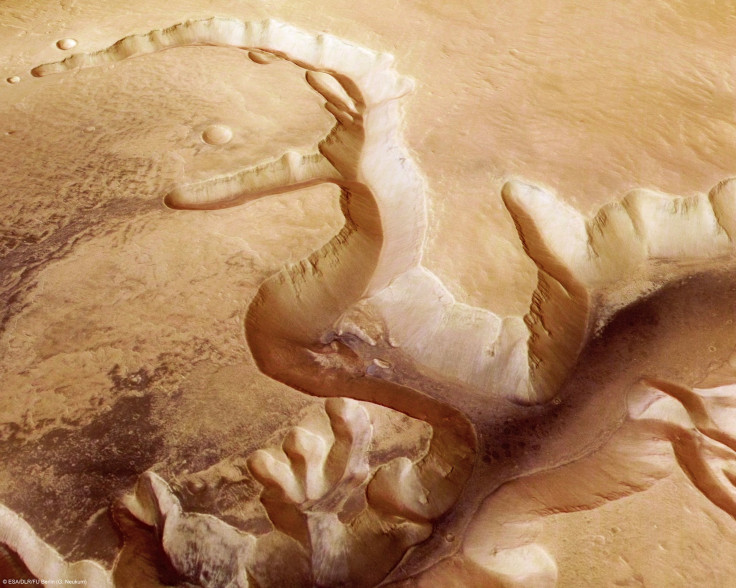Mars Surface Hit By Meteorite Could Have Caused Major Floods

Mars may be a dry and dusty planet today but now new evidence shows that ancient meteorite impacts could have filled the Red Planet with water.
According to Space.com, it was difficult to produce rainfall on Mars before because the Sun wasn’t giving it enough heat to produce greenhouse gases and cause condensation. But in a study conducted by Martin Turbet, a planetary scientist and climatologist at the Sorbonne University in France, he suggested that cosmic impacts caused Mars to heat up and generate enough steam to produce rain, leading to the formation of vast bodies of water.
The theory was tested through computer models that measured how meteorite impacts affected the climate and geological makeup of the Red Planet. The study, which is yet to be reviewed, focused on impacts caused by large rocks that created craters and basins about 600 kilometers wide.
Based on the analysis, the impacts of large meteors caused Mars to become so hot that water evaporated really fast, causing constant rain for a dozen Martian years. The rains were believed to have caused a deluge and covered the planet with an average of 8.5 feet (2.6 meters) of water per Earth year.
"Using sophisticated three-dimensional global climate-model simulations similar to the ones used, for example, to simulate global warming on Earth, we were able to simulate for the first time in three dimensions the climate change induced by the very large impacts that hit Mars about 4 billion years ago," Turbet said.
After years of constant rainfall, Mars quickly cooled and surface water froze somewhere between 1,000 to 100,000 years after the impacts. These frozen regions then melted and turned to vapor by solar radiation, forming Martian poles.
A different study corroborated how Mars’ surface water could have disappeared. According to a research published in Frontiers in Microbiology, the Red Planet’s harsh environment, which is constantly exposed to extreme temperatures and UV radiation, made it impossible for water to remain on the surface. This most likely caused the water to seep underground.
Another interesting thing to note is that both studies suggest that because of the bodies of water on Mars, there’s a big possibility that life existed or could still exist somewhere on the Red Planet.
© Copyright IBTimes 2025. All rights reserved.





















